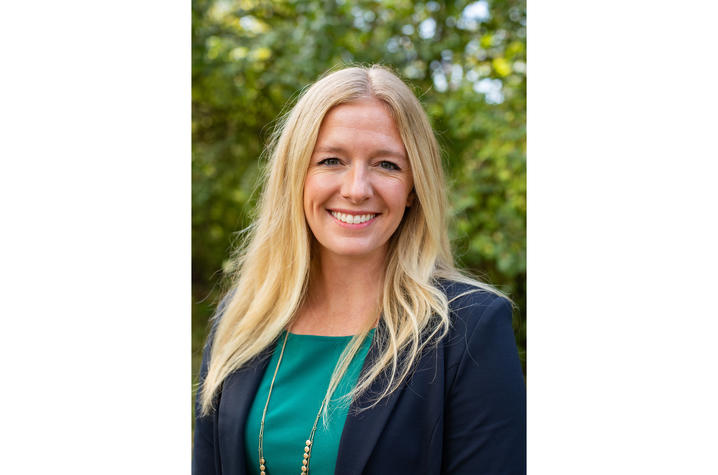Nursing researcher to study service provision for older adults experiencing homelessness

LEXINGTON, Ky. (Dec. 14, 2022) — The number of older adults experiencing homelessness (OAEH), especially in the age 50 and over category, is increasing in the United States. This is leading to an increased number of OAEH with chronic and often life-threatening illnesses. How do members of this population get their basic needs met? How can they get treatment for their conditions and how can healthcare providers best treat these patients?
These are questions that University of Kentucky College of Nursing Assistant Professor Abbie Latimer, Ph.D., is seeking to answer through a project funded by a grant from the Rita and Alex Hillman Foundation. She is the principal investigator working with Debra Moser, Ph.D., UK College of Nursing assistant dean of PhD Program and Scholarly Affairs, and UK College of Social Work Associate Professor Natalie Pope, on a project titled, “Adapting the Serious Illness Conversation Guide for Older Adults Experiencing Homelessness.”
With a background in palliative and hospice care, Latimer said the project came about from her observations in the clinical setting.
“I was on the inpatient palliative team and what would keep popping up were older homeless adults experiencing a serious illness,” said Latimer. “It was unclear how their basic needs were being met, if they were having any side effects from their treatment, and how they were dealing with it. And watching providers have conversations about prognosis, I felt like I wanted to learn more about this.”
Latimer applied for the grant in March 2022 and was informed over the summer that her team was a finalist. They were recently notified that they had been chosen from that small group of finalists.
The research will center on adapting the Serious Illness Conversation Guide that was developed by Dana-Farber Ariadne Labs as the foundational tool for their Serious Illness Care Program. The Center to Advance Palliative Care defines a serious illness as a health condition with a high mortality risk and negative impact to functional ability or quality of life. The tool is being made available publicly to be adapted to specific population groups with the hope that knowing and honoring patients’ priorities as well as their goals, values, and wishes becomes a normal aspect of care, especially during serious illness. Latimer plans to further develop the tool for use in homeless shelters, community health centers and hospital settings including emergency departments.
They will recruit homeless older adults and providers who frequently interact with this population to adapt the conversation guide.
“They are really RNs, social workers and social service care managers,” Latimer said. “We are really trying to keep all those needs in mind as we adapt the tool so that we can launch it later. We want to create a conversation around supporting these folks and the providers who are caring for them.”
She explained that there is a stigma attached to people experiencing homelessness and that often providers do not know how to help or how to talk to them about their illness.
“The goal is to have a variety of providers and settings to hear their thoughts and their experiences to know what it is like for them, and the patients as well,” said Latimer.
Input will be sought from patients to see whether the questions make sense or if other questions should be added or omitted.
Latimer added that she hopes to draw attention to two conversations that most people do not like to have: the prevalence of homelessness and, secondly, death, dying and serious illness.
“One of the things that this project is already doing is bringing it to people’s attention and getting people to think about the fact that just because people don’t have stable housing, it doesn’t mean they don’t have basic human needs and they don’t experience death” said Latimer.
Latimer’s team will begin recruiting patient and provider participants in January. They will work with Good Samaritan Hospital, the Hope Center in Lexington and Susan Buchino, homeless services director for Louisville, to connect with referral sites. Buchino is on the research team as a supporter as well as Jessica McFarlin, M.D., chief of the Division of Palliative and Supportive Care at UK HealthCare, and Good Samaritan Patient Care Manager Seth Curtis.
As the state’s flagship, land-grant institution, the University of Kentucky exists to advance the Commonwealth. We do that by preparing the next generation of leaders — placing students at the heart of everything we do — and transforming the lives of Kentuckians through education, research and creative work, service and health care. We pride ourselves on being a catalyst for breakthroughs and a force for healing, a place where ingenuity unfolds. It's all made possible by our people — visionaries, disruptors and pioneers — who make up 200 academic programs, a $476.5 million research and development enterprise and a world-class medical center, all on one campus.




